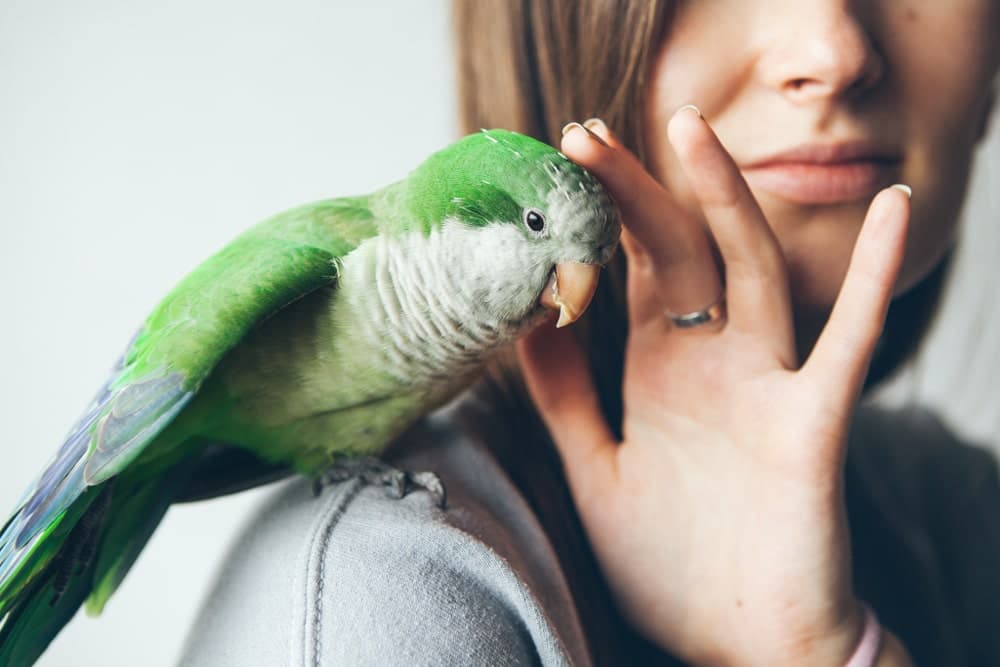Home > Pet Insurance > Pet Insurance for Birds
Pet Insurance for Birds
Read our handy guide on pet insurance for birds.
Author
Savvy Editorial TeamFact checked

As a bird owner, taking care of your feathered friend is a top priority. Pet insurance is one way to do this, helping to cover the costs for veterinary care and support their health and well-being.
What does pet insurance for birds cover?
Bird insurance is a specialised form of exotic pet insurance designed to provide coverage for the well-being of your avian companion. Just like a dog or cat, birds can face health challenges, and having bird insurance means you’re prepared for unexpected medical expenses and more. This type of insurance covers various aspects of your bird’s care, ensuring you can provide the necessary treatment and cover other costs without worrying about the financial implications. This may include:
- Veterinary fees: covering the costs of medical care for injuries and illnesses.
- Specialist treatment: assisting with costs when your bird needs specialised care.
- Diagnostics: covering expenses for tests to diagnose health issues.
- Advertising and reward expenses: providing help if your bird is lost or stolen.
- Third-party liability: protecting you in case your bird causes harm or damage to others.
Are there any limitations or exclusions on bird insurance?
When it comes to bird insurance, it’s crucial to be aware of potential limitations and exclusions that can impact your coverage. Some potential restrictions to keep in mind include:
- Pre-existing conditions: health issues your bird had before the insurance policy started.
- Age limits: insurance for birds may have an age range.
- Waiting periods: a set period that must elapse before coverage takes effect for specific conditions or treatments.
- Annual limits and benefit percentages: many policies impose annual coverage limits, and insurers may reimburse only a portion of eligible expenses.
- Excess: a predetermined amount you must pay per claim before insurance coverage applies.
- Availability: due to the unique nature of exotic pet insurance, options for bird coverage in Australia may be limited.
What health issues can affect my pet bird?
Birds can be afflicted by a variety of health problems, treatment for which may be covered by your pet insurance. Common conditions that pet birds can experience include:
- Respiratory infections: birds are susceptible to respiratory infections, often caused by bacteria or viruses. Symptoms may include sneezing, nasal discharge, coughing and difficulty breathing.
- Psittacosis (parrot fever): A bacterial infection that affects various bird species, including parrots and cockatiels. It can cause respiratory symptoms, lethargy and loss of appetite.
- Feather plucking: behavioural disorder where birds excessively pluck their own feathers, often due to stress, boredom or underlying health issues.
- Beak and feather disease: a viral infection causing feather loss, beak deformities and weakened immune systems.
- Avian pox: viral infection resulting in skin lesions, swollen eyes and respiratory issues.
- Gastrointestinal disorders: birds can suffer from digestive problems, such as infections, diarrhea and malnutrition.
- Mites and lice: external parasites that can cause skin irritation, feather loss, and general discomfort.
- Chlamydiosis (Psittacosis): a bacterial infection causing flu-like symptoms in birds and potential transmission to humans.
Regular veterinary check-ups and a healthy diet can help prevent and manage many of these illnesses. If you notice any changes in your bird’s behaviour, appetite or appearance, it’s important to consult your vet.
Types of pet insurance you can choose from
This is the most basic type of pet insurance, covering costs for accidental injuries such as car accidents, poisoning, burns, fractures, snake and spider bites, but not illnesses and other conditions.
This type of insurance provides cover for accidental injuries as well as illnesses like cancer, gastrointestinal problems and eye, ear and skin conditions, but not routine care for your pet.
This offers the highest level of protection, covering accident and illness and potentially routine care such as vaccinations, dental care, worm and flea treatments and microchipping.
Why compare pet insurance with Savvy?
100% free
Our comparison service is free to use, providing you with a range of pet insurance quotes at no cost.
Compare in two minutes
You'll be able to compare offers online side by side in a matter of minutes before you buy.
Choice of insurers
We’ve partnered with a range of pet insurers to give you more choice when selecting a policy.
Frequently asked questions about pet insurance for birds
Many pet insurance policies allow you to choose your preferred vet. As a bird owner, you may require a specialist vet who has experience in treating birds and other exotic animals.
No – microchipping is not usually a requirement for getting pet insurance for birds. However, it can be helpful for identifying your bird in case it gets lost or escapes.
Besides birds, other exotic pets that may be covered by insurance in Australia include reptiles and small mammals.
Yes – if you have more than one pet, you may be able to insure them under the same policy. Many insurers offer multi-pet policies, which can be a convenient way to get cover for all animals in your household and often comes at a discounted price.
